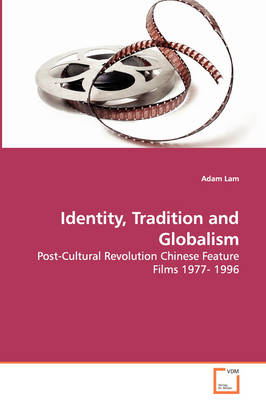
Identity, Tradition and Globalism
Post-Cultural Revolution Chinese Feature Films 1977- 1996
Seiten
2008
VDM Verlag Dr. Müller
978-3-639-11106-4 (ISBN)
VDM Verlag Dr. Müller
978-3-639-11106-4 (ISBN)
- Titel nicht im Sortiment
- Artikel merken
Following the official end of the Cultural
Revolution in 1977, China began reforms from 1978.
Although the initial goal of the reforms was to
improve the nation s economy, changes soon occurred
across other fields ranging from politics to
culture, from society to the legal system. These
changes had a significant impact on the development
of Chinese film. Applying contemporary theories and
citing numerous sources in both Chinese and English,
this book examines the works of acclaimed Chinese
third- to sixth-generation directors from 1977 to
1996. Many of these filmmakers are now
internationally famous either for their cinematic
achievements or for the political controversies
arising from their films. The author argues that
Chinese film during this period experienced a shift
of cultural identity from subjection to Chinese
tradition to submission to transnational globalism.
The analysis of how and why Chinese films have
become internationally popular recently should be
especially useful to those interested in Chinese
cinema. Some provocative arguments by the author are
likely to trigger further debate on the preservation
of tradition and globalization.
Revolution in 1977, China began reforms from 1978.
Although the initial goal of the reforms was to
improve the nation s economy, changes soon occurred
across other fields ranging from politics to
culture, from society to the legal system. These
changes had a significant impact on the development
of Chinese film. Applying contemporary theories and
citing numerous sources in both Chinese and English,
this book examines the works of acclaimed Chinese
third- to sixth-generation directors from 1977 to
1996. Many of these filmmakers are now
internationally famous either for their cinematic
achievements or for the political controversies
arising from their films. The author argues that
Chinese film during this period experienced a shift
of cultural identity from subjection to Chinese
tradition to submission to transnational globalism.
The analysis of how and why Chinese films have
become internationally popular recently should be
especially useful to those interested in Chinese
cinema. Some provocative arguments by the author are
likely to trigger further debate on the preservation
of tradition and globalization.
| Sprache | englisch |
|---|---|
| Gewicht | 422 g |
| Themenwelt | Sozialwissenschaften ► Kommunikation / Medien ► Allgemeines / Lexika |
| Sozialwissenschaften ► Kommunikation / Medien ► Medienwissenschaft | |
| ISBN-10 | 3-639-11106-0 / 3639111060 |
| ISBN-13 | 978-3-639-11106-4 / 9783639111064 |
| Zustand | Neuware |
| Haben Sie eine Frage zum Produkt? |
Mehr entdecken
aus dem Bereich
aus dem Bereich
Falzen, Heften, Binden für Gestalter
Buch | Hardcover (2023)
Verlag Hermann Schmidt
CHF 76,95
Das offizielle Adressbuch der Stadt Tübingen
Buch (2023)
Ungeheuer + Ulmer (Verlag)
CHF 39,95
Das offizielle Adressbuch der Stadt Freiberg
Buch (2023)
Ungeheuer + Ulmer (Verlag)
CHF 20,85


